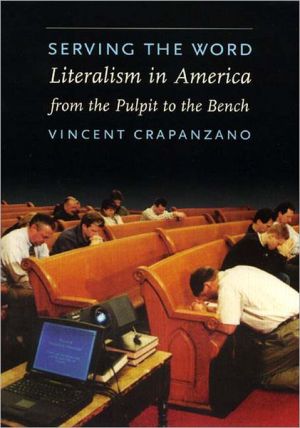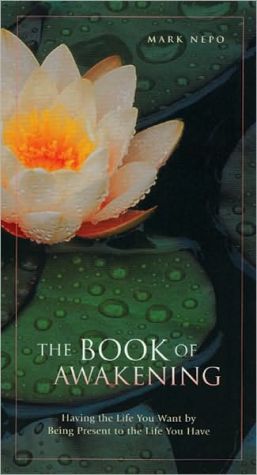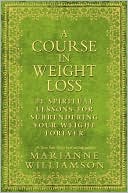Serving the Word: Literalism in America from the Pulpit to the Bench
Brilliantly observed and persuasively argued, Serving the Word is an unprecedented look at the prevalence of literalism and the unexpected forms it takes in modern America's religious and secular life. Hailed as "thoughtful [and] suggestive" (The New York Review of Books). Serving the Word treats literalism as a modern belief system, analyzing its place in two seemingly contrasting fields: Christianity and the law. Leading anthropologist Vincent Crapanzano argues that the attraction to...
Search in google:
Brilliantly observed and persuasively argued, Serving the Word is an unprecedented look at the prevalence of literalism and the unexpected forms it takes in modern America's religious and secular life. Hailed as "thoughtful [and] suggestive" (The New York Review of Books). Serving the Word treats literalism as a modern belief system, analyzing its place in two seemingly contrasting fields: Christianity and the law. Leading anthropologist Vincent Crapanzano argues that the attraction to literal certainty that we associate with fringe fanaticism is in fact deeply embedded in American culture. This provocative book examines our society's very conception of the truth, and poses basic questions about the state of America's mind and soul. Daniel J. Kevles A rich and illuminating work, and arresting moral and cultural rumination.
\ \ \ \ \ Chapter One\ \ \ Election\ \ \ This is Ralph Barnes, a master's student at one of the most conservative evangelical Bible seminaries in Southern California:\ \ \ "The Bible is a divine book, an inerrant one, without error. It's God-breathed. It's also a human book. And it says, Peter wrote, that Scripture was not given from one source but when men of God were moved by the Holy Spirit. In the same way that you would pick up a pen and write a letter, it is the pen that actually did the enscripturating. God used men. Through His Spirit, He used the full capacity of men to write the words that He wanted. So that the words themselves were the words of God....\ "But here's the thing. The Bible was written in ordinary language. God can speak truthfully without having to speak exhaustively. We can know truth, and we can know truth truthfully, and we can know it, though we may not know it exhaustively. So when you look at Scripture, you're looking at a book in which God has—God is able to communicate to man, though we are not able to comprehend the fullness of God because we are finite and He is infinite. Nevertheless, God is able to communicate to men, and He is able to communicate in a language which represents reality. It represents reality truthfully....\ "God had spoken to Adam and Eve in clear propositional truth. But the created being, the serpent, who was indwelled by Satan himself at that point, came and spoke and caused Eve to question the word of the Creator, the revelation of the Creator. She subjected herself to the Serpent and listened to him instead ofto the revelation of the Creator. We can't know anything truthfully unless God reveals it to us. God had revealed truth. He hadn't revealed exhaustive truth. We have far more truth though than Adam had—through Scripture. However, God had given him adequate truth, everything he needed to know. But, you see, the problem is that Eve—1 Timothy 2—was deceived by Satan. He came and deceived her by saying, `God didn't really say that. You won't die. Go ahead and eat it.' He caused her not to trust the word of God but rather to rely on her own experience. `Look, Eve, is this a nice apple?' She trusted her experience instead of the word of God. Adam—the Bible tells us—was not deceived. What he did, he did in full knowledge of his rebellion against God. In each case, you had a human being who refused to listen to the word of God.\ "Now they were created in perfection. They had minds which had not been tainted from the curse and fall. And yet they were subject to corruption and they were subject to error, because they did not listen to God. How much more are we? You see, we need to understand that the Bible is a unique book—there is none other like it in the world—and that what God speaks in and through it, He speaks authoritatively and accurately, and truthfully."\ \ \ The commitment and the fervor with which Ralph Barnes speaks of the Bible, his insistence on its truth, its divine inspiration, its "God-breathedness," his dedication—his surrender—to its every word is not limited to strict Christian Fundamentalists. According to polls, between 34 and 40 percent of Americans say they believe that the Bible is the "actual word of God and is to be taken literally." In 1983, 44 percent were found to believe that "God created man pretty much in his present form at one time during the last 10,000 years." In 1995, nearly two thirds (65 percent) affirmed their belief in the devil, 73 percent believed in Hell (up from 67 percent in 1981 and 66 percent in 1968), 90 percent believed in Heaven, 79 percent believed in miracles, and 72 percent believed in angels. While one must treat figures like these with caution, they do point to a dramatic increase in Bible-believing, or evangelical, Christians. Associated with right-wing politics, the so-called Christian right, these evangelical Christians are often identified with Fundamentalists. However, such a label is inaccurate and usually derogatory. It oversimplifies evangelical Christianity.\ For most lay people Fundamentalism simply refers to Protestants who take the Bible literally. They are confused with Pentecostalists. They are stereotyped. One thinks of a fanatic, hell-and-damnation Fundamentalist preacher from the Bible Belt, entertaining his congregation with tales of fornication and depravity that would have embarrassed Paul's Corinthians; or of a Bible-thumping revivalist—Jimmy Swaggart or Jim and Tammy Bakker—conning his flock into spiritual rectitude and self-denial as he himself wallows in sin and the guilt that ensues. And one thinks of Oral Roberts, who once had to stop a sermon to raise a dead person, calling the infirm up to their television sets—their personal altars—to give themselves to Jesus; or of Benny Hinn, slaying whole audiences in the Spirit (that is, causing them to fall in ecstasy as they receive God's fiery baptism) with a wave of his hand; or of Billy Graham, or Jerry Falwell, or Pat Robertson and his Ralph Reed calling Americans to self-righteous, God-given, biblically inspired politics. And we must not forget Bill and Hilary Clinton's one-time favorite, Robert Schuller of Crystal Cathedral fame, whose weekly "Hour of Power" advertises that for a pledge of six hundred dollars a year you can become a member of the Eagle Club and receive a fine porcelain eagle that, evoking America, symbolizes membership in Schuller's exclusive Christian community—and the power to survive in the constant threat of extinction by the forces of evil.\ While these images, like all stereotypes, are not without their truth, they do not do justice to the belief, the longing for belief, the pain, despair, confusion, fear, disappointment, and loneliness as well as the hope, certainty, love, contentment, and ecstasy of the Bible-believing Christian. You can hear these feelings through all the glib preaching and prêt-à-porter testimonies on radio and television and in the media-inspired services of the megachurches spawned by "church growth" consultants like C. Peter Wagner, who apply the latest marketing techniques to increase church membership. (Wagner himself, I've been told, has the whole church exorcised before he begins his work.) You can hear them in ordinary churches and in the pleadings for advice that are the stuff of call-in church radio and twenty-four-hour church counseling services. You can hear them in the conversion tales, miracle stories, and confessions told at prayer meetings and in Bible study groups and recorded on countless audio and video cassettes. And you can read them on thousands of web sites and in countless tracts, evangelical novels, and biblically inspired self-help books.\ Miracle tales, conversion stories, and other testimonies attest to God's love and care—his intervention—in the lives, usually the stricken lives, of ordinary people. The stories are, for the most part, conventional, but that conventionality is usually concealed by their intensely personal quality. To give one example: a missionary, who returned to his home church from Thailand, gave a sermon in which he talked about the meaninglessness in his life, the despair and desperation, the whirl toward extinction that had led him, when he was nineteen, to put a loaded shotgun in his mouth. As he was about to fire it, he caught sight of a Bible. He wasn't a Bible reader. He had no faith in God. Once only, as a child, had he prayed for his dying grandmother, and she had died anyway. Yet, somehow, he was moved to pull the gun out of his mouth and to pick up the Bible. He opened it at random, without much conviction, without understanding why, and read the first verse of Psalm 116: "I love the Lord, because he hears my voice and my supplications." He did not understand the significance of this verse until he read the psalm's third verse: "The sorrows of death compassed me, and the pains of hell got hold upon me: I found trouble and sorrow." He was so stunned by the relevance of these words that he called upon the Lord for deliverance.\ Stories like the missionary's tell of terrible disappointment and despair as they promote hope. Not only do they reveal the most intimate details of the storyteller's life but they attest to a special relationship with Jesus. Jesus is cast as a caring friend, who has, of course, the powers, of grace, forgiveness, and redemption, that no human being could ever possess. He sacrificed himself—in evangelical terms, He died a substitionary death—on behalf of sinners. Under most circumstances these stories simply could not be told. They would be too personal, too private, too revealing of the storyteller's vulnerabilities. But insofar as they attest to God's power, concern, and love, they can be told in public, even on television. They tell how sinfulness and depravity and the despair that comes with them were overcome by the grace of God. The storyteller is so removed from his sinful past that he can treat that past with a detachment that promotes, paradoxically, the wonder inspired by God's love and grace. Depraved, that past becomes a figure for moral and spiritual rectitude. It serves self-understanding and brings faith to others.\ The stories reflect an ambiguity inherent in evangelical Christianity. Who is the hero of these stories? Ultimately, it is God, but He is no ordinary hero, for He commands the storyline. Man's position is more complicated. His fate is already determined—he is either one of the elect or he is not—so how can he be a hero in the stories he tells? And yet he is. He has overcome his sinful way of life; he has resisted the temptation to sin; he has remained true to God despite great adversity. He has given himself to God and accepted His word. It is in this way that the storyteller becomes the hero of his tale—but his heroism is not that of an Achilles or an Odysseus. Those are heroes in and despite the throes of fate. The evangelical hero is one whose heroism attests to the glory and mercy of God. He submits to his predetermined fate, his salvation, the way the Greek hero cannot, for the Greek hero has neither the promise—the certainty—of salvation nor the loving, personal, and personalized concern of a Jesus. He has only his own glory and honor, which are of course submerged if not condemned and foreclosed in the evangelical's heroism. The evangelical's stories are success stories in miniature—the American dream cast in spiritual terms (that are not altogether resistant to material claims). They proclaim humility as they announce election.\ Election, which is an essential feature of the Reformed churches, Presbyterianism, and most Baptist belief, runs counter to the American emphasis on the individual and his freedom. I have found that most of the Fundamentalists I talked to, even the strict Calvinists, sidestepped election even as they emphasized being chosen. One elderly Baptist pastor in upper New York State—a man who was clearly going through a period of intense self-reflection—preached the mystery of election. "No, not even I can understand election," he said, implying at once his own election and his—any one's—incomprehension, and he went on to define election as "being special to God." He stressed God's absolute sovereignty and yet argued that we also have responsibility for our election. "Both are important," he said. "It is only when we have examined our lives and seen change, real change, that we know we are of the book of the Lamb." For him, from the vantage point of his age, the change in oneself, more perhaps than the experience of being reborn, gives evidence of one's chosen status. I detected a certain pride in his election. For many evangelicals, those younger than he, those given to greater faith in personal experience, particularly for the Pentecostals, certainty comes with conversion—with going up to the altar.\ The attribution of belief is always problematic. We have to recognize changes in understanding, emphasis, intensity, and commitment not only over a person's lifetime but in much shorter periods of time—during a conversation, for example, a testimony, a church service, or a moment of tribulation or elation. We also have to recognize a certain consistency in belief, a sense of permanence, of orientation and reference, of that which transcends the immediacy of experience and the contingencies of circumstance. We cannot dismiss attestations of belief as mere rhetoric, or performance, unless we include in our understanding of that rhetoric, that performance. Reference to the transcendent at once denies the power of rhetoric as it affirms it; for rhetoric—and performance—requires that stability, that gravitational point, that center, from which to depart in its constitution of the here and now. A text may incarnate that center, as Scripture does for the Fundamentalist.\ It is in this context that the Fundamentalists' literalism has to be understood. Despite the differences among them, Fundamentalists believe what the Bible tells them in plain, ordinary words, and they try to live their lives in accordance with what they have been told. They are committed to the inerrancy of Scripture and they resist, often passionately, any theology that departs in their eyes from the teachings of Scripture. For the most part, they are committed to "pretribulational premillennialism"—the belief that Christ will return to "rapture" true Christians before the time of tribulations and the reign of the antichrist that will precede Satan's defeat at Armageddon and the millennium. This lends itself to a prophetic reading of the Bible and to a sense of imminent apocalypse. Most are militantly hostile to liberal theology and modern biblical criticism. George Marsden, one of the leading authorities on Fundamentalism, argues that what distinguishes the Fundamentalists from other evangelicals is their militant and uncompromising combat against modernist theology and its secularizing trends. They tend to be hard-line, pragmatic empiricists and yet to contain the intellect in what they consider to be biblically permissible. They are certain that anyone who does not share their faith is not a true Christian and will not be saved. In Calvinist fashion, they insist that salvation is by the grace of God alone—and never by works. As premillennialists, they look to the second coming of Christ as the only cure for the world's social and political ills. Given their dismissal of anyone who does not share their beliefs, they tend to polarize the world and resist any contact, certainly any real dialogue, with those who might challenge their views. Though separatism is still strong among the strictest Fundamentalists—like those at Bob Jones University in Greenville, South Carolina, who refuse contact with even those Fundamentalists who do not share their views—others engage, with caution, in efforts to make the United States a "Christian" nation. Their typical church is independent.\ \ \ * * *\ \ \ Fundamentalism falls within the conservative wing of evangelical Protestantism, which is itself conservative and difficult to define both institutionally and theologically. Mark Noll, an evangelical historian, notes that evangelical Christianity "has always been made up of shifting movements, temporary alliances, and the lengthened shadows of individuals." It is essentially a Bible-centered religion that believes salvation to be possible only through a regeneration, or spiritual rebirth, that comes with personal trust in Christ and his atoning work. The spiritual transformation that results from being reborn is characterized by a life of devotion—Bible reading and prayer—morally explicit conduct founded on biblical precept, and evangelical and missionary zeal. Evangelicals tend to view the church as a voluntary association of believers who are bound by biblical authority. They have been traditionally anti-Catholic, though in the last few years, mainly for political reasons, many of them have underplayed their differences with Catholicism and have even attempted to work hand in hand with Catholics on common concerns. Generally, evangelists have not been as committed to the inerrancy of Scripture as the Fundamentalists have; instead, they speak of the Bible's "infallibility" or of its being "authoritative" and "reliable."\ Unlike the Fundamentalists, evangelicals are not wedded to premillennialism. In fact, nineteenth-century evangelicals were taken with a postmillennial vision of moral and spiritual progress toward an age in which the gospel would be triumphant throughout the world, after which Christ would return. They believed that the prophecies in the Book of Revelation concerning the defeat of the antichrist (often understood as the pope) were actually taking place, opening the way for the thousand-year golden age before Christ's return and the end of history. Persuaded that the defeat of Satan was imminent, they saw America as playing a leading role in the cultural advancements—learning, science, technology—that would ensue. The great nineteenth-century revivalist Charles Finney (1792-1875) wrote that the Christian church (by which he meant the Protestant church) was designed "to lift up her voice and put forth her energies against iniquities in high and low places—to reform individuals, communities, and government." Distinctly patriotic, this vision reflected the optimism of the age—faith in scientific and material progress. As a whole, evangelicals have been, and continue to be, more at ease than Fundamentalists with the mainstream American ethos of individualism, freedom, and progress. They have been committed to social reform and have played an important role in the abolition of slavery, in temperance movements, in prison reform, and in private charities. Today, as we know, many are involved in conservative political reform, in antiabortion, "family values," and antipornography movements, and in the condemnation of drugs, violence in the media, homosexuality, and other "sinful" sexual practices.\ Until after the Civil War and then, less forcefully, into the first decades of the twentieth century, evangelical Protestantism was America's religion of reference and provided the rhetoric for self-depiction, social understanding, and political policy. American higher education was in fact distinctly "evangelical" in orientation, at least until the 1870s, when the model of the German university began to take root in the United States. This model stressed specialized—secular and scientific—knowledge over the building of moral and spiritual character, which had been a primary goal of American higher education. In 1835, fifty-one of the fifty-four presidents of America's largest colleges were clergymen, mainly Presbyterian or Congregational. Evangelical publications were immensely popular. Between 1790 and 1830, evangelicals founded over six hundred magazines. By 1830, two of them, the Methodist Christian Advocate and Journal and Zion's Herald and the interdenominational American National Preacher each claimed circulations of 25,000, giving them the largest circulation of any journal of any kind in the world. The drive to spread the gospel intensified with the "businessmen's awakening" in the years preceding the Civil War. Noonday prayer services, stressing inner peace in the midst of external turmoil, were especially appealing to urban merchants who had suffered during the financial panic of 1857. During the Civil War, the Young Men's Christian Association and the United States Christian Commission were able to mobilize more than five thousand volunteers who brought evangelical Christianity to the Union soldiers.\ Among these volunteers was Dwight L. Moody (1837-1899), who was to become one of the most important progenitors of Fundamentalism. He started out as a shoe salesman, first in Boston and then in Chicago, but after experiencing the inflow of the Holy Spirit, he devoted most of his time to spreading God's word. In 1873, he moved to England where he became a well-known revivalist and was soon able to parlay his reputation there into a series of enormously successful revivals in the United States. He stressed conversion, insisted on the infallibility of Scripture, and tended to avoid any theological elaboration, particularly if it was controversial. His message was simple and sentimental, told through anecdotes, and cast in slogans, such as the "Three R's"—Ruin by sin, Redemption by Christ, and Regeneration by the Holy Ghost. Unlike Finney, but like many of his own generation, he gave far greater importance to saving souls than to social reform. He argued, as do Fundamentalists today, that the spiritual and moral uplift that comes with conversion would lead inevitably to a social improvement far superior to that brought about by social activism on the part of the churches. Yet he worked with the newly founded YMCA, started a Sunday school for the poor, a Bible training center in Chicago for lay workers, which later became the Moody Bible Institute, summer missionary conferences, and the evangelical Student Volunteer Movement. Toward the end of his life, he founded the Mount Hermon Northfield Academy in his home town in Massachusetts. Moody was a practical man: he looked and spoke like a businessman. He appealed to the middle-class individualism and pragmatism of his age, and, as one of his admiring biographers put it, was "a benefactor of men." He stood "boldly, manfully, and squarely" against their retreat from religion.\ As the century progressed, however, the evangelicals' commitment to cultural and scientific progress began to undermine their religious outlook. The supernatural dimensions of their postmillennial faith were brought into question. Their world was becoming naturalized—subject to the laws of nature that science revealed. Change—geological, biological, social, and cultural—was at the heart of this new scientific view. History could no longer be understood simply as a cosmic battle between God and Satan whose outcome was preordained. Historical processes had to be understood in their own right, their laws discovered. Darwinism was devastating to the biblical faith. Religion came to be understood less in absolute terms, as revealed by God, than as reflecting developing conceptions about God and morality. The Higher Criticism, which developed in Germany in the nineteenth century and sought to determine the authenticity, authorship, and chronological construction of Scripture, regarded the Bible as simply a record of ancient Hebrew religious experience.\ In reaction to these changes, evangelicals like Moody began to stress personal holiness and commitment to Christ over active social reform. They moved from an optimistic postmillennial view of the future to a more pessimistic, certainly more conservative, premillennial one. Marsden refers to this move as a "profound alteration" in the "basic epistemological categories" of evangelical thought. He argues that despite their disagreement on the time of Christ's return, the premillennialists shared until after the Civil War the postmillennialists' vision of history and their conviction that at least some biblical prophecies could be taken literally, that they were in fact being fulfilled in the present age. However important this move may have been theologically, it does not constitute a profound epistemological alteration, for there was no change in the categories of historical understanding themselves. Indeed, as we shall see in Chapter Three, these persist today. The historical account of the first chapters of Genesis—Creation, the Fall, the Flood, the collapse of the Tower of Babel, and the genealogy of nations—had not been questioned by postmillennialists any more than it was by the premillennialists. Nor had its historical and anthropological presuppositions. Both shared, in the words of the historian of Victorian anthropology George Stocking, the same "anthropological paradigm"\ \ \ whose temporal framework was both finite and confined, whose psychological and epistemological assumptions were innatist and a priori, whose principle of social order was patriarchal, whose principle of human diversification was genealogical, whose principle of temporal change was degenerationist, and whose privileged reconstructive data were those of linguistic relationship....\ \ \ Unlike their antebellum predecessors, the new premillennialists were dispensationalists. They offered a systemic view of history in which biblical prophecies were thought to refer to real historical events. History itself was divided into distinct eras, or dispensations, usually seven in number (for example, the Dispensation of Innocence in Eden or the Dispensation of the Law from Moses to Christ), during which God exercised his stewardship over man in different ways. Thus were the dispensationalists able to account for inconsistencies in Scripture, which were especially salient given their commitment to the Bible's total and inerrant harmony. Of particular importance were the discrepancies between Christ's teachings and Paul's theology—a point dramatically made in George Moore's novel, The Brook Kerith, in 1916. They regarded the present era—the Church age—as a sort of parentheses and insisted, contra the liberals and postmillennialists, that Christ's kingdom was wholly in the future, supernatural in origin, and discontinuous with the history of the present.\ It is out of nineteenth-century premillennialism that Fundamentalism grew. (The term was coined in 1920 by Curtis Lee Laws, the editor of the Baptist Watchman-Examiner.) Fundamentalism is usually associated with the publication between 1910 and 1915 of The Fundamentals: A Testimony to the Truth, a series of twelve religious pamphlets, that defended Scripture, offered a surprisingly restrained critique of modernism, and avoided any social and political causes. Promoted by California oil millionaire Lyman Stewart and his brother Milton, these "testimonies of the truth" were distributed free to more than three million pastors, missionaries, theologians, YMCA and YWCA secretaries, college professors, and Sunday school superintendents throughout the English-speaking world. Although the Fundamentals did not have the impact Stewart had hoped for, it did help define the "Fundamentalist" position. By 1919, some six thousand delegates met in Philadelphia to found the World's Christian Fundamentals Association (WCFA), the first of a series of Fundamentalist organizations that were to spring up over the century. Among the delegates was the former White Sox second baseman, Billy Sunday, America's most popular revivalist, who drew enormous crowds preaching what the sociologist William Martin has recently called "a kind of muscular perfectionism," that is, the conquering of vices like smut, illicit sex, a taste for pool halls and the theater, and drink, which Sunday saw as the principal cause of war and crime. Determined to wrest evangelical Christianity from what he saw as its feminine trappings, Sunday directed his appeal to men. "Jesus is no ascetic," he proclaimed, but a "robust, red-blooded man." H. L. Mencken was struck by the preponderance of men at what he called Sunday's "bull-ring devoted to the saved." Sunday's theology was slim: his basic message; according to William Martin, was that being a good Christian was "adhering to dominant political and economic orthodoxies and upholding the moral standards of the Anglo-Saxon Protestant middle class." He always said there could be no religion without patriotism, and during World War I taught children to hiss at the German flag. At the request of President Wilson he helped sell one hundred million dollars in Liberty Bonds. Though most strict premillennialists would have been troubled by his social and political commitments, they probably shared the values he preached.\ \ \ * * *\ \ \ Within the conservative evangelical fold, and often confused with Fundamentalism, is Pentecostalism, which grew out of Methodism, the Holiness movements and the revivalism of nineteenth-century America. It also has roots in African-American religion, which are reflected in its music, it style of worship, its enthusiasm, and its millennial expectations. Its name derives from the account of the day of Pentecost in the first two chapters of the Book of Acts.\ \ \ And when the day of Pentecost had come, they [the apostles?] were altogether in one place.\ And suddenly there came from heaven a noise like a violent, rushing wind, and it filled the whole house where they were sitting.\ And there appeared to them tongues as of fire distributing themselves, and they rested on each one of them.\ And they were all filled with the Holy Spirit and began to speak with other tongues, as the Spirit was giving them utterance.\ \ \ To the dismay of many Fundamentalists, Pentecostalists find in these lines reason to give greater credence to experience than to doctrine and the careful reading of Scripture. Though they focus on the so-called gifts of the spirit, especially speaking in tongues, or glossolalia, faith healing, and casting out demons, they also stress salvation and the Second Coming of Christ. Their theology is based less on Paul than on Luke and Acts—that is, on narrative texts that are notoriously difficult to interpret. The majority of Pentecostalist preachers have no seminary education; they tend to bombard parishioners with Bible verse after Bible verse with little concern for theological subtlety and system. They make continual reference to the passage from Acts just quoted and to one from Mark, whose authenticity has been questioned by many biblical scholars:\ \ \ And these signs will accompany those who have believed: in My name they will cast out demons; they shall speak with new tongues; they will pick up serpents; and if they drink any deadly poison, it shall not hurt them; they will lay hands on the sick, and they will recover.\ \ \ They understand these gifts as signs of salvation. Indeed, the historian Robert M. Anderson claims that in its early years all that distinguished Pentecostalism from the Holiness movements was speaking in tongues. It was—and is—their assumption that the gifts are a sign of salvation that offends the Fundamentalists and most other Christians.\ Appealing largely to the poor and marginalized, Pentecostalism is said to be the fastest growing religion in the world today. Some claim there are as many as twenty million new converts a year and a total membership of more than four hundred million. Even in the United States there are enormous differences in the style of Pentecostal worship. Of course, the most extreme are the snake-handling services in Appalachia, in which believers demonstrate their "gifts" by taking up rattlesnakes, but there are other churches whose enthusiasm can be quite wild. The assembled enter a sort of ecstasy dancing, jumping around, praying, shouting, prophesying, speaking in tongues—it sounds a bit like a soft, eerie gurgle—and falling to the ground in a seizure. Many Pentecostalists take the words they speak in tongues to be those of some ancient, holy language they do not know. In some churches, they seem to heave sounds out of their belly. They cough and grunt and even laugh as did revivalists in the great Kentucky revival of the last century. Most Pentecostal services, particularly in the larger churches, are more sedate, and their members seem to have mastered the "decorum" of the gift. A few parishioners will speak in tongues during the service, but most do so at the altar after the main service. If they are slain in the spirit and fall to the ground, they are ministered with an awe-inspired gentleness by others who may also be in ecstasy. There may be some laying on of hands on these occasions, but usually faith-healing takes place in smaller groups. And still other evangelical churches, the most discreet, ask their Pentecostalists to pray in tongues in separate rooms or at separate services.\ Pentecostalism is conventionally said to have begun in 1906 at a revival in an abandoned Methodist church on Azusa Street in a poor, industrial section of Los Angeles. Led by a mild-mannered but fervent black Holiness preacher, William J. Seymour, the Azusa congregation was taken up by the "Holy Spirit." People shouted wildly, sang praises to the Lord, leaped, ran and jumped about, kissed and hugged one another, and spoke in strange languages unknown to them. The Los Angeles Daily Times described a "weird babel of tongues" among "a new sect of fanatics." Frank Bartleman, an itinerant Holiness preacher, who attended services at Azusa, wrote that the "meetings were controlled by the Spirit, from the throne."\ \ \ Someone might be speaking. Suddenly the Spirit would fall on the congregation. God himself would give the altar call. Men would fall all over the house like the slain in battle, or rush for the altar en masse, to seek God. The scene often resembled a forest of fallen trees.\ \ \ People soon flooded the church. They "would fly to pieces on the street," Bartleman wrote. Within two or three blocks of the Mission, "they were seized with conviction." Meetings lasted from ten in the morning until midnight or later; sermons were short and "spontaneous" and always declared tongues a gift of the Holy Spirit and a sign of salvation. They were soon attended by people from all over the country and, within two years, Pentecostalism had spread to fifty countries.\ John MacArthur, a strict Fundamentalist pastor in Los Angeles, and one of the harshest critics of Pentecostalism and other charismatic religions, argues that the Pentecostalists give "undue emphasis" to the baptism of the Holy Spirit. "Those who have not experienced the baptism and its accompanying phenomena are not considered Spirit-filled; that is, they are immature, carnal, disobedient, or otherwise incomplete Christians." Such thinking, MacArthur argues, "opens the floodgates for believing that vital Christianity is one sensational experience after another" and leads to "a contest to see who can have the most vivid or spectacular experience."\ \ \ And, of course, those with the most awesome testimonies are held in the highest esteem spiritually. Incredible claims are made, and they almost always go unchallenged.\ \ \ MacArthur's Charismatic Chaos is filled with "incredible claims." They range from that of a medical missionary who had spent five and a half days in heaven to that of a preacher who was carried away, in the middle of a sermon, to watch from the back seat of a car the woman he was involved with have sex with a married man. By giving priority to personal experience rather than to Scripture, the Pentecostalist has, according to MacArthur, no standards for the critical evaluation of his experiences and those of others. Experiences can be false, MacArthur insists, but God's word is truth.\ (Continues...)
AcknowledgmentsA Note on Bible TranslationPrefaceIntroduction1Pt. IThe Pulpit1Election292Sanctification843History150Pt. IIThe Bench4The Constitution1975Foundations2296Intention2797Precedent304Conclusion324Notes357References383Index399
\ Daniel J. KevlesA rich and illuminating work, and arresting moral and cultural rumination.\ \ \ \ \ New York Review of BooksCrapanzano takes the Fundamentalists as he finds them and expounds the manifestations of their literalism without condescension or contradiction.REVIEW [D]isturbing but important. Washington Post Book World\ \ \ Publishers WeeklyDisturbed by what he perceives as the growing prevalence of literalism in American culture, Crapanzano (a professor of anthropology and comparative literature at the Graduate Faculty of CUNY and author of Waiting: The Whites of South Africa) undertakes to study what he sees as two of its most egregious manifestations, in religion and in the law. In his examination of this belief that "meaning is timeless," Crapanzano is careful not to denigrate those he studies--whether among the religious right or among jurists seeking the "original intent" of a legal text--as he says others have, as "repugnant cultural others" or "know-nothings." Instead, he finds most of those he interviews friendly and articulate, if aggressive, unwilling to compromise and, mainly, long-winded (after one four-hour conversation, he says, "Finally I just fled"). Crapanzano's main beef with these champions of literalism, be they ministers or judges, is that they have no concept of "an openness to the position of the other," which he sees as essential to democracy. Instead, they emerge in his view, at least among religious literalists, as un-Christian Christians, more interested in separatism, individual rebirth and the end of time than in Christianity's message of love. They are also, he notes, overwhelmingly male; he sees a connection between "literalism and the denigration of women," since the literal is a hallmark of "the pragmatic, tough-minded realism that Americans attach to the male persona," while "poetic language, indecision, and confused thinking" are associated stereotypically with women. In saying that no generation should be hampered by the strictures of a previous one, Thomas Jefferson argued that we must not ask a grown man to wear the jacket that fitted him as boy, but in Crapanzano's view, the literalists are trying to cripple democracy by cramming the present into the straitjacket of the past. (Mar.) Copyright 2000 Cahners Business Information.\|\ \








